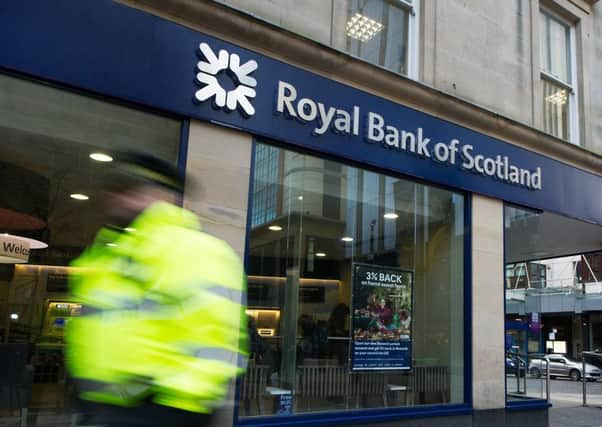Martin Flanagan: Bigger hits loom on horizon for RBS
This article contains affiliate links. We may earn a small commission on items purchased through this article, but that does not affect our editorial judgement.


But there is certain to be a bigger coughing paroxym by RBS on the issue than that agreed with the National Credit Union Administration (NCUA) before this one is put to bed. The bank, which did not admit fault under the terms of yesterday’s deal, still faces massive settlements over the issue that went to the heart of the sub-prime scandal with the US Department of Justice (DoJ) and the Federal Housing Finance Agency.
They are likely to put seriously in the shade the relatively meagre $1.1bn payment now agreed. Of course, the spotlight has swung strongly back on RBS because of the current difficulties with US regulators being faced by Deutsche Bank.
Advertisement
Hide AdAdvertisement
Hide AdThe DoJ, playing hardball, has demanded $14bn from the German banking giant for its part in the scandal and RBS is seen very much by financial markets as next in the firing line.
It never rains but it pours, however. Unconfirmed reports suggest RBS has racked up more than £100m in costs to defend itself against a pending £4bn shareholder legal action.
In multiple claims, investors allege they were misled as to RBS’s underlying financial strength when they backed a £12bn rights issue in the spring of 2008 just months before the bank tumbled into taxpayer ownership after the biggest losses in British corporate history.
Having said that, the shareholder actions are relatively negligible in the scheme of things for the bank even though it would dearly like to settle out of court.
And the costs of £100m, if that is what they turn out to be, are absolute chickenfeed in the broader contest of what a still financially-stricken RBS may have to face.
Some believe the eventual DoJ claim on the Scottish bank – which is ironically making decent underlying profits before legacy issues continue to bite it – could be as high as £9bn.
Even if RBS managed to negotiate that down to a figure, say, half as much, it would still be a considerable hit and a likely further postponement of the bank’s full and final return to the private sector. The pain goes on.
